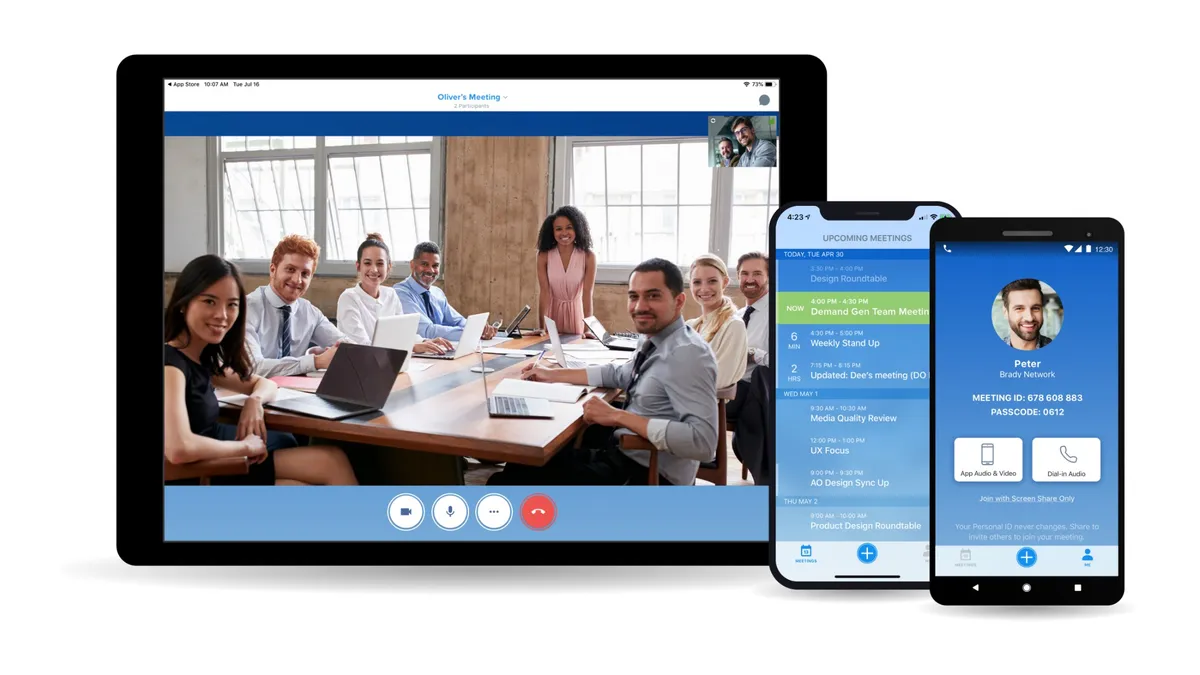Brief:
- Verizon acquired videoconferencing and event platform BlueJeans Network to expand its offering of immersive communications services, per an announcement. The phone company didn't disclose how much it's paying for BlueJeans, but CNBC reported that the deal is valued at about $400 million.
- Verizon plans to integrate BlueJeans with its 5G services as the company continues its nationwide rollout of high-speed mobile connectivity. BlueJeans currently serves a range of enterprise customers from small businesses to large multinational brands, according to the announcement.
- Facebook, GrubHub, LinkedIn, National Geographic, Nordstrom, Pernod Ricard and Viacom are among the customers of BlueJeans, per its website. The company's founders, key management and employees will join Verizon when the deal closes as expected in Q2.
Insight:
Verizon's acquisition of BlueJeans may affect mobile marketers that can use the service for live video events, though it's not clear whether that would include consumer-focused campaigns. BlueJeans is mostly focused on the enterprise market, with applications such as telemedicine, remote learning and virtual training. The service isn't free to consumers like Zoom and Skype, which may limit applications for connecting brands with people who are stuck at home during the coronavirus pandemic.
For Verizon, the acquisition is an important strategic fit for the telecommunications giant as it continually expands its range of services to businesses and consumers. Adding BlueJeans to its 5G network may help Verizon to compete with other major mobile carriers such as AT&T and the recently merged T-Mobile and Sprint. The company has the financial resources and managerial expertise to scale BlueJeans' cloud-based platform amid growing demand for videoconferencing services. That demand was seen in a 378% jump in daily active usage for videoconferencing platform Zoom last month from a year earlier, per AppTopia data cited by MarketWatch. Microsoft Teams, the tech giant's communication and collaboration platform, experienced a 775% surge in calling and meeting users in Italy, a country that enacted social distancing policies to suppress the spread of the coronavirus.
Videoconferencing platforms aren't media outlets that sell ad inventory, but they can be used for other kinds of marketing activities. A recent example is Chipotle Mexican Grill's "Chipotle Together" sessions that feature celebrity guests and up to 3,000 participants at a time. The online gatherings drove 500 million impressions and 100 earned media stories, the company told Marketing Dive, a sister publication to Mobile Marketer.
Aside from Chipotle's example, brands have tended to be more reliant on social networks like Facebook and livestreaming platforms like Twitch for virtual events that engage their target customers. However, Zoom has been dogged by privacy concerns including accusations of unauthorized data sharing and incidents of "zoombombing" in which videoconferences get hijacked with hate speech and pornography.
The pandemic has led to massive disruptions in the way people work, attend school and communicate with others — changes that may have a lasting effect after the pandemic subsides. Many organizations have had to adapt quickly to social distancing policies, and they're learning from the experience how to handle major crises and to operate more efficiently. Videoconferencing services like those from BlueJeans and new parent company Verizon have the potential to become a key part of electronic communications.














